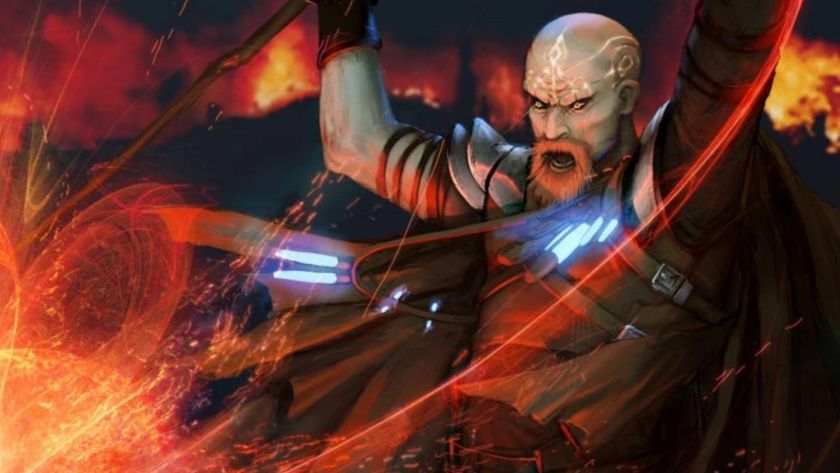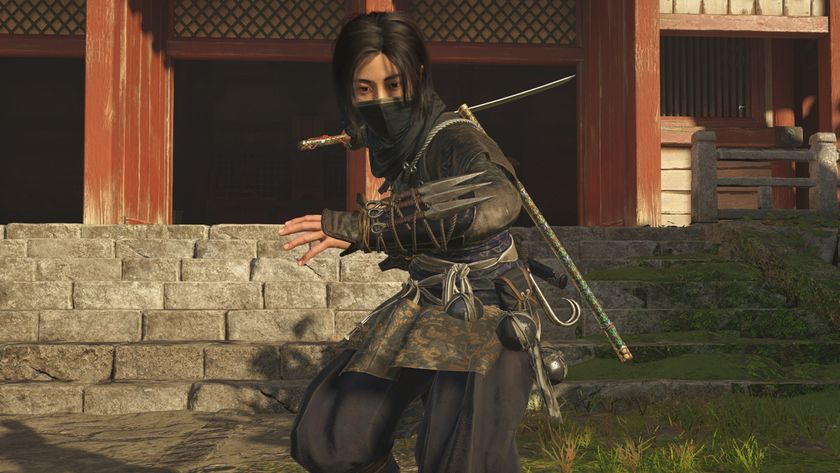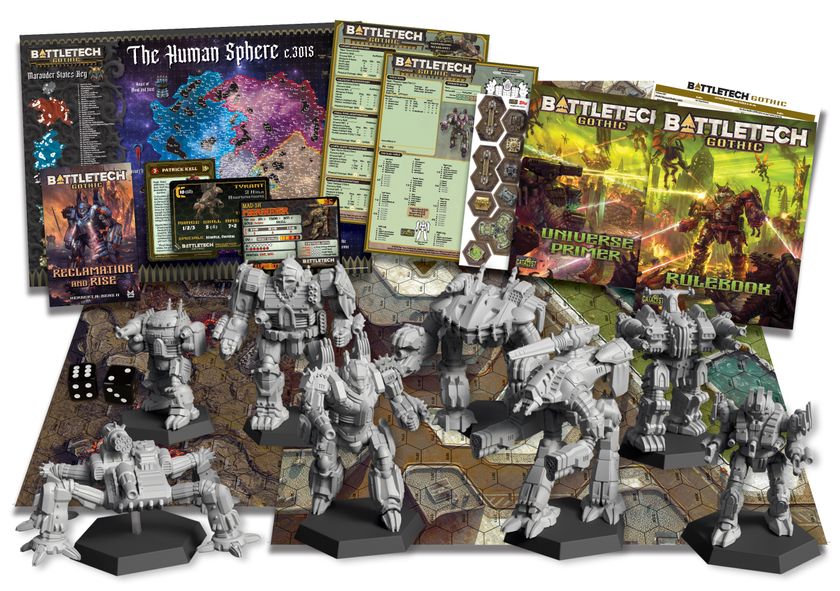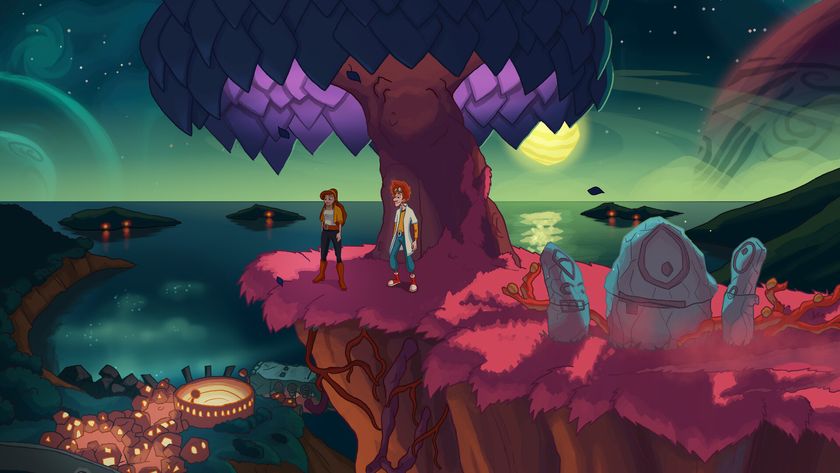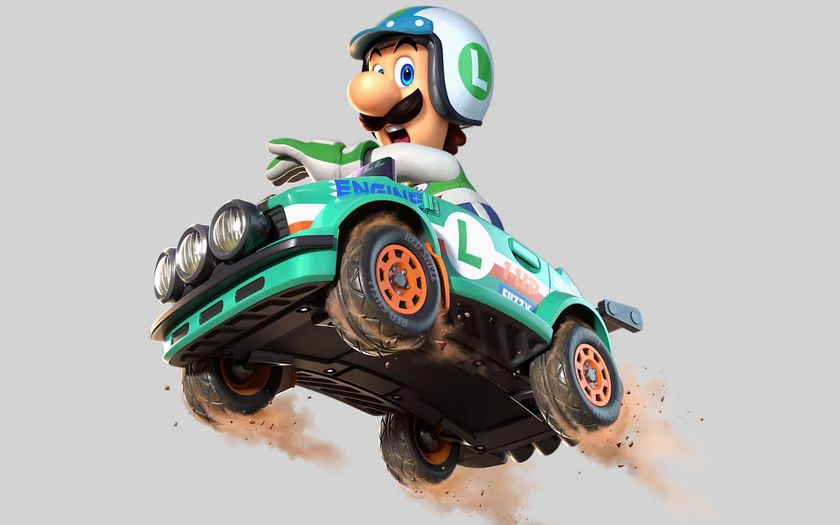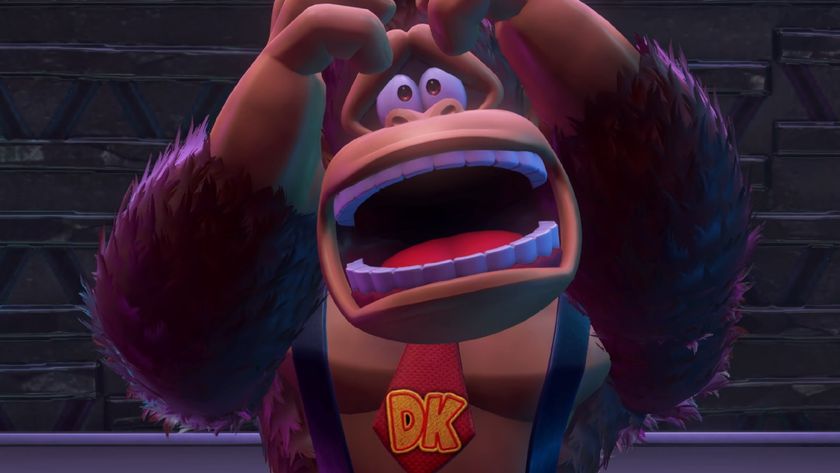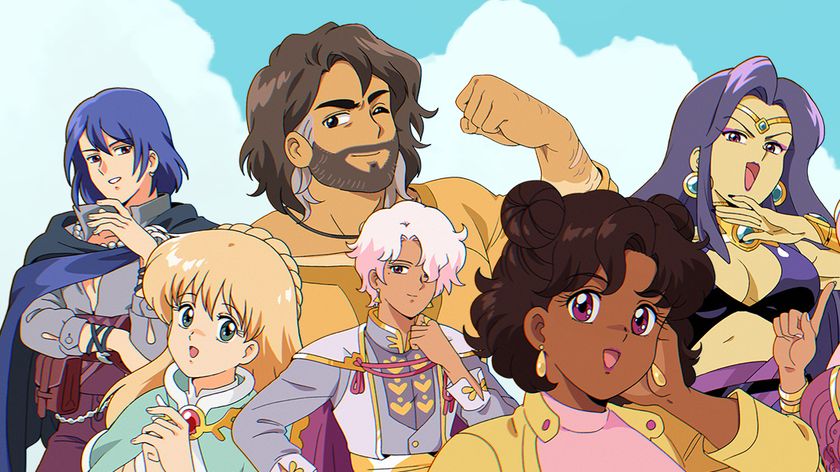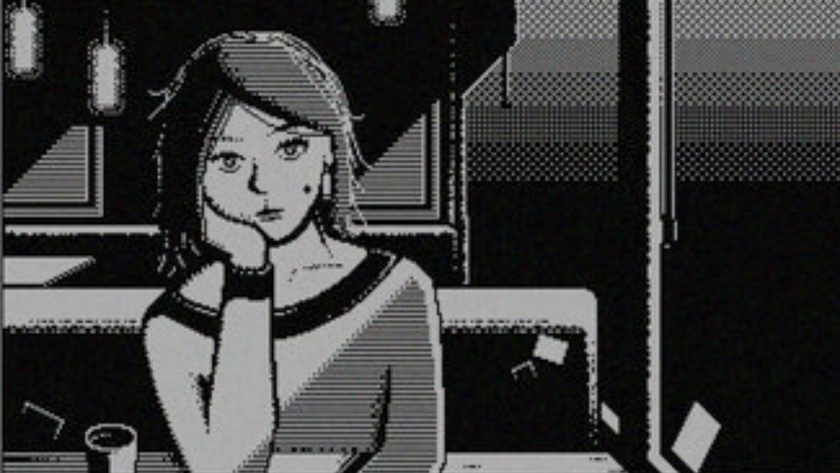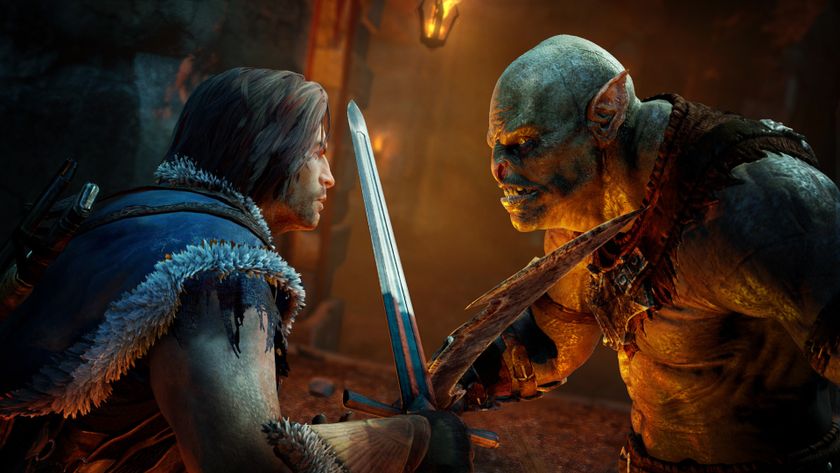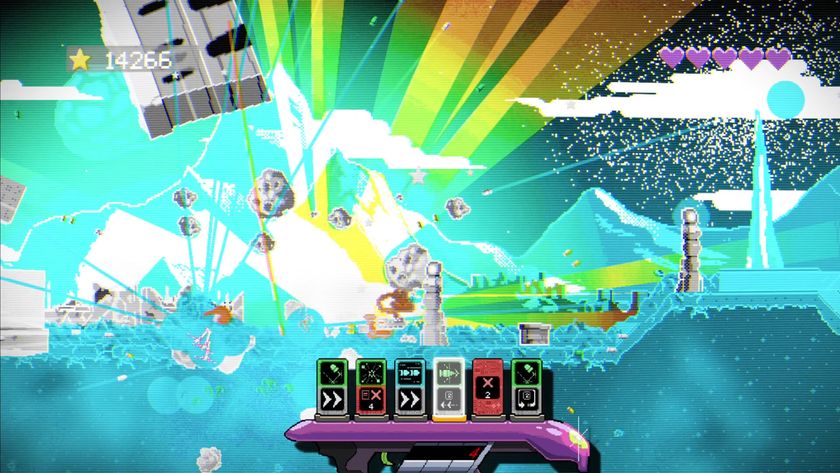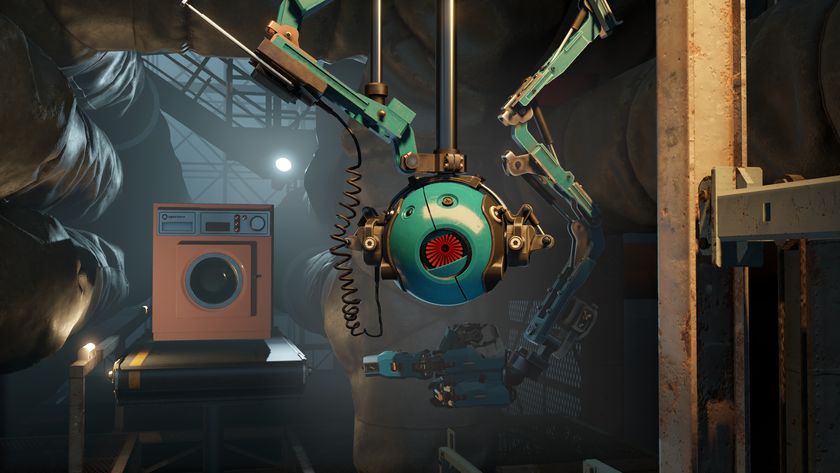It's been a great year for RPGs, if you hate and fear the new
Re-releases and retro RPGs made the futuristic-sounding year 2021 feel indebted to the past.
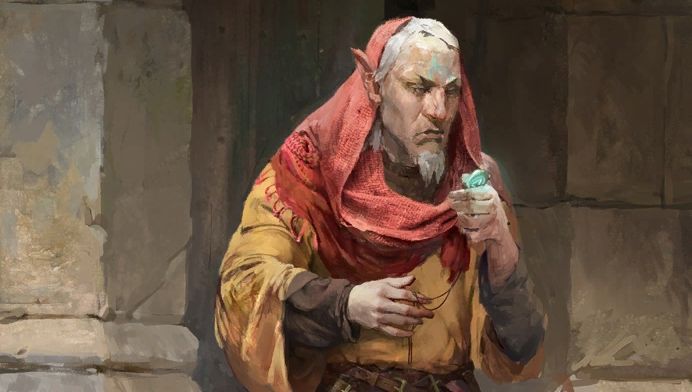
In 2019, Disco Elysium pushed the RPG genre so far people said it wasn't really an RPG at all. They called it an adventure game, or a visual novel. Disco Elysium really was an RPG of course—one with roots in CRPG classic Planescape: Torment and the kind of tabletop roleplaying with actual dice—but it was revolutionary enough to sail right to the edge of our convenient definitions. It felt like evidence of a genre that was thriving.
While games directly influenced by Disco will take a while to start arriving, it felt like the product of an overgrown RPG greenhouse. Surely that same climate was about to produce even more unusually proportioned fruit?
Maybe not. By contrast, in 2021 the genre felt safe and predictable. For starters, it was dominated by remasters, re-releases, and ports. As well as Disco Elysium's own Final Cut, there was Mass Effect Legendary Edition, Diablo 2: Resurrected, Final Fantasy's pixel remasters, Nier Replicant, Legend of Mana HD, Geneforge 1 - Mutagen, more Kingdom Hearts games on PC than any human could ever actually play, and the incremental update of Skyrim Anniversary Edition. Further ahead, we can look forward to The Witcher 3's next-gen edition and Star Wars: Knights of the Old Republic Remake.
There's nothing inherently wrong with re-releasing old games. It used to be that classics were often lost, either hard to find or hard to get running on modern machines, the history of the medium evaporating behind us. Though games are still routinely delisted these days, overall the industry is better at preserving and valuing its own history than it used to be. (And profiting from that, of course.)
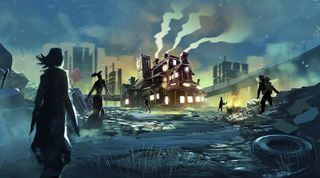
Durante called 2014 the first year of the CRPG renaissance, but it's really kicked into gear now. Old school as they may be, I'm looking forward to a bunch of the upcoming top-down party-based RPGs.
Broken Roads is basically Fallout Australia, Odd Gods is a '90s-style RPG about the '90s, and Sovereign Syndicate is a steampunk game where you can play an alcoholic minotaur in a top hat. There's also Black Geyser, The Iron Oath, Project Witchstone, Dark Envoy, Space Wreck, and probably more I don't know about.
What's surprising is that most of the new RPGs that squeezed out between 2021's herd of re-releases didn't feel like the future, either. They skewed toward celebrations of the past, the kind of games that will inevitably be described as "love letters."
Pathfinder: Wrath of the Righteous is a particularly blatant example, an homage to Baldur's Gate with a strategy layer from Heroes of Might & Magic, one chapter set in an extraplanar city that would be right at home in Planescape, and two dungeons that reference Fallout vaults.
We also had Eastward, which is a love letter to Earthbound and The Legend of Zelda, Encased, which is a love letter to Fallout and STALKER, Monster Crown, which is a love letter to Pokémon and Dragon Quest Monsters, and Solasta: Crown of the Magister, which is a love letter to Neverwinter Nights and every D&D campaign run by a teenage Dungeon Master. These are RPGs so old-fashioned they should come with a pair of suspenders and a hat.
The biggest gaming news, reviews and hardware deals
Keep up to date with the most important stories and the best deals, as picked by the PC Gamer team.
They're not bad games—they're just repeating past successes. RPGs, like the fantasy fiction they grew from, have always had a tendency to look backwards.
When drawing on legends and history for inspiration, in the words of professional curmudgeon Michael Moorcock, traditional fantasy can be "sentimental, slightly distanced, often wistful, a trifle retrospective." Fantasy presents worlds where ancient means better and lost empires of the distant past are idealized, and those attitudes can bleed into the culture around fantasy as well.
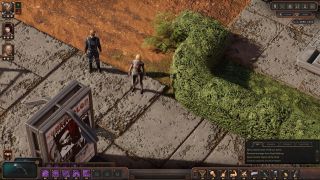
Even sci-fi RPGs tend to look back for their inspirations. This year's Encased, an homage to the isometric Fallouts, is a perfect example. Where Fallout contrasted a Mad Max post-apocalypse with the raygun optimism of 1950s and '60s sci-fi, Encased combines Mad Max with dystopian fiction from the 1970s, swapping jetpacks for jumpsuits. These are retrofutures and alternate pasts rather than visions of tomorrow.
Familiar settings can still make great games, but they're usually combined with familiar formats, too. Characters who steadily go from zero to hero, journeys through dangerous wilderness to a safe settlement slightly larger than the last one, loot to scavenge and sell, factions to side with or alienate, underground areas full of monsters, at least one sidequest with zombies. They're predictable fun, second helpings of meals we already ate.
Look at Ruined King: A League of Legends Story, which is basically developer Airship Syndicate reskinning its previous RPG Battle Chasers: Nightwar—smoothly replacing one generic cartoon fantasy licence with another.
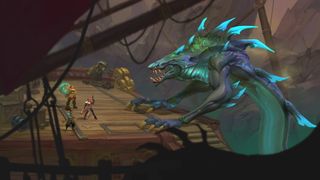
Not every RPG that looked backwards in 2021 was pure homage or love letter, though. Gamedec, a cyberpunk RPG about a detective who solves mysteries inside games, took jabs at everything from Stardew Valley to Star Citizen (its protagonist collects expensive spaceships for a videogame that remains unfinished even in the 22nd century). More pointed was Get in the Car, Loser!, which reversed the pushy heterosexuality of Final Fantasy 15's crew of playable bros and bikini-top mechanic for the lads to ogle. By contrast, Get in the Car, Loser! is a self-described lesbian road trip RPG with a cast diverse enough to make the average comment section sneer itself into a shriveled raisin.
There's value in parody and commentary, in criticism that comes from inside the house. Maybe it can help clear the deck for more RPGs that feel like steps forward for the form. I only played a couple of those this year. Funnily enough, they were both games about dealing with the past.
Looking back and moving forward
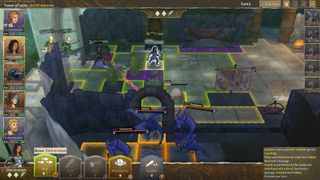
Wildermyth is a tactics RPG that cares more about simulating the tangled inter-character relationships of long-running D&D games than their shopping trips. Its adventurers never gain gold, but they do develop rivalries and romances, have children and retire. When you finish one Wildermyth campaign and start another, some of those legacy heroes can return to join the new cast, leveled down and made young again. Snippets of their past remain, however. They keep select abilities and are haunted by the effects of old adventures. One of my warriors, infected by a gorgon seed, returned with a crust of stone still across her face, and a prosthetic replacing the leg she lost in a fight against overwhelming odds.
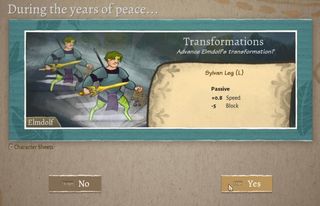
You can also choose to forget certain characters, ensuring they'll never return. Or if you don't spend legacy points to preserve someone's latest iteration at the end of a campaign, render that story non-canon, reverting to their prior self. It's up to you whether your characters continue to grow and change, or revert to an iconic version.
One of my legacy heroes toppled out of a tapestry depicting myths and legends in the middle of a later game. Her memories were jumbled and she seemed unconvinced this new crop of heroes were any more real than others she claimed to have encountered in the lost years between. I've never played a videogame that so perfectly emulated the feeling of bringing an old D&D character to a new table where your previous adventures stop seeming valid and you find your assumptions and backstory clashing with the world you're in and the group dynamic molding it.
Surprisingly, the other innovative RPG I played in 2021 is based on a Skyrim mod from 2015. The Forgotten City keeps only a few bits of the parent game that worked—the archery is most obviously right out of Skyrim, and the NPC scheduling is also a hint of Elder Scrolls DNA.
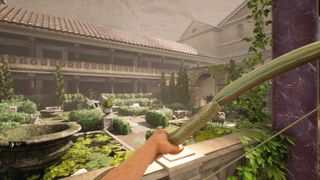
The difference is, when guards say things you've heard before in Whiterun it's goofy, whereas in The Forgotten City it plays to the theme. It's a game about being caught in a timeloop. You're yanked through the ages to a cursed Roman settlement where punishment for any crime results in everyone's death. To lift the curse, each time that happens you're yanked back again to restart the day, hoping this time you'll anticipate and prevent the crime.
One more element kept from Bethesda's open-world RPGs is the way you bounce between sidequests and main quests of wildly varying tones. The most blatant example is a swing into horror, a standout section about being trapped in a labyrinth of living statues. It works because it contrasts with the cosy village mystery vibe of what came before, and because replacing Tamriel's lore with Greek and Roman myths gives the supernatural elements more impact.
When someone compares your impossible task to Sisyphus rolling his boulder up the hill, it resonates (even if you immediately think of the smiling version from Supergiant's Hades).
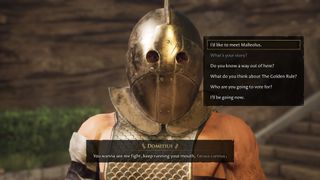
A few upcoming RPGs look set to build new futures on old bones.
- Death Trash has you recycle gross meat to survive. It's twisting the isometric RPG into an uncanny form that plays differently and tells a different kind of story.
- She Dreams Elsewhere uses Earthbound's warped America aesthetic to represent the inner world of a coma patient.
- Baldur's Gate 3 modernizes the series enough to make people who think RPGs peaked in 1998 apoplectic, which makes me happy.
While a layer of Skyrim is visible in The Forgotten City's foundations, like the burnt level of strata beneath London from the time Boudica razed the place, it ditches a lot of traditional RPG cruft. Stats and skills are irrelevant to the kind of story The Forgotten City tells, so it does away with them. Distinctions between character classes are so minimal they barely exist—archaeologists get insights into objects they examine, outlaws get increased sprint speed—and there's no leveling or XP.
Instead, you improve from loop to loop by learning what's going on. You solve a sidequest to get life-saving medicine to someone in need, then set up a convenient way of delivering it to them each day.
You're not empowered because some numbers went up, but because you're transforming into Bill Murray in Groundhog Day, always in the right place at the right time, a living Rube Goldberg machine walking a path you've set up perfectly.
The Forgotten City and Wildermyth share some themes. They're games about deciding what to keep from what's gone before, and using that to write a new future. RPGs may seem like they're stuck in a rut, focused on yesterday, but with luck they'll learn from it and 2022's will be a more balanced spread. Re-releases and retro celebrations alongside RPGs that make the genre feel unfamiliar again—whether by finding unexpected gaps to fill, or figuring out which old ideas that seemed essential can be forgotten and replaced with new ones.

Jody's first computer was a Commodore 64, so he remembers having to use a code wheel to play Pool of Radiance. A former music journalist who interviewed everyone from Giorgio Moroder to Trent Reznor, Jody also co-hosted Australia's first radio show about videogames, Zed Games. He's written for Rock Paper Shotgun, The Big Issue, GamesRadar, Zam, Glixel, Five Out of Ten Magazine, and Playboy.com, whose cheques with the bunny logo made for fun conversations at the bank. Jody's first article for PC Gamer was about the audio of Alien Isolation, published in 2015, and since then he's written about why Silent Hill belongs on PC, why Recettear: An Item Shop's Tale is the best fantasy shopkeeper tycoon game, and how weird Lost Ark can get. Jody edited PC Gamer Indie from 2017 to 2018, and he eventually lived up to his promise to play every Warhammer videogame.
